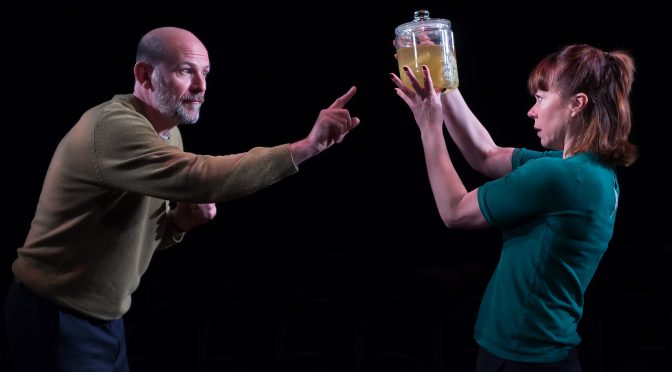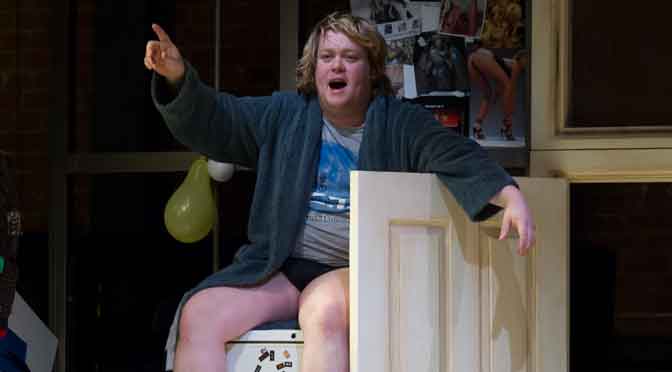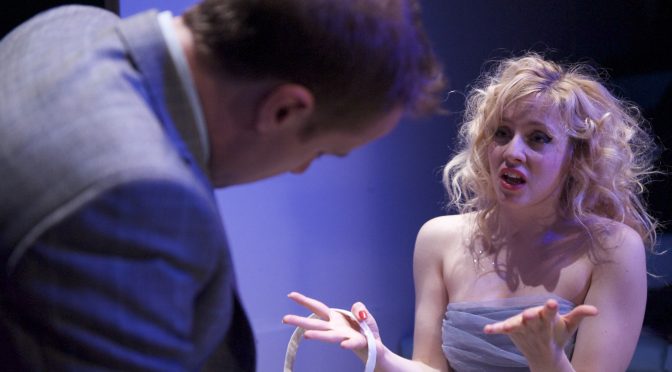This is it. Nick Payne’s play Incognito, which opened in London last night at the Bush Theatre, is the kind of exciting new play you wait a long time for. Theatrically bold, startlingly intelligent, full of insight and wit, there’s a palpable sense that this is an important piece.
The play interweaves three compelling stories: a man without long-term memory is observed over time by researchers; a scientist steals Einstein’s brain for research in 1955; and a neuropsychologist has a life-changing love affair in the present day. Incognito is an exploration into the science of the mind and the philosophy of the self: the ‘stuff’ that makes us who we are. Intellectually curious and full of big themes, it is also lively and entertaining.
There’s common ground with Payne’s previous award-winning play, Constellations. The different paths lives take sounds a continuous bass note. But Incognito explores fertile philosophical questions more explicitly and engages with science more forcefully. Father figures are used in a thought-provoking manner to examine the contribution heritage and history make to our identity. And, wait, there are great laughs too. As with David Hume, whom I suspect Payne admires, there’s an earthiness that develops into a rich humour. This serious play is also very funny.
For all the jokes, Incognito is a demanding work, but there’s a deserved sense of confidence from the terrific writing. Payne’s ability to form connections between the many characters so quickly is unerring. The switch from pathos to a great gag is like lightning, and having the characters and themes “come together and move away” is as exciting as a thriller. Director Joe Murphy builds a breathtaking rhythm, carrying (and crediting) the audience as the scenes become less naturalistic in casting and speedier in transition. Incognito is wonderfully crafted and hugely exciting.
This is a challenging play for performers and the cast’s achievement will amaze. Four performers share 21 characters, differentiating mostly with accents as the stories move geographically and through the decades. Paul Hickey transforms himself remarkably, Alison O’Donnell and Sargon Yelda show tremendous comic skills and Amelia Lowdel is spectacular in every scene. This is riveting stuff that deals well with powerful emotions and piercing questions. One for the heart and the head, it’ll have your synapses snapping, and will hang around your hippocampus long after you leave the theatre. Five stars. See it.
Until 21 June 2014
Photo by Bill Knight
Written 16 May 2014 for The London Magazine



